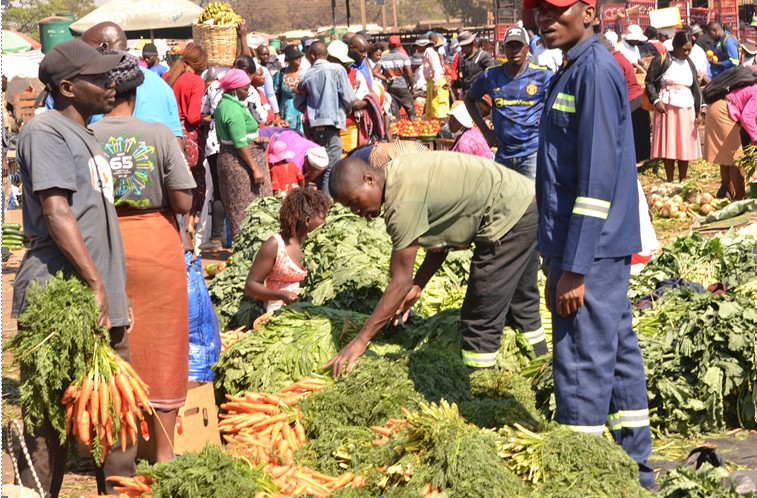For a very long time, the development sector has used external consultants to gather baseline information before implementing a new project in a new community. While the main advantage of that approach is that an outsider can see what community members may not see about themselves, there are more advantages in empowering communities to conduct their own baseline studies. Where necessary, the external consultant should just develop a framework for the baseline study and let communities collect the data. This can enhance ownership of both the process and the product which communities can later use to make decisions for other socio-economic interventions.

Where external consultants are used to collect baseline data, communities tend to reserve some of the details because there could be issues that they may not be willing to share with strangers. For instance, they may not be comfortable discussing local politics with strangers but on their own such issues and other deep challenges or experiences can be debated at lengthy in ways that may lead to consensus. Community participation in baseline data collection also fosters freedom of expression with no fear of victimization. The consultant can just provide a sense of direction in the dialogue.
In most cases, consultants have no time to understand the local context and culture. For instance, an investigation done by a consultant in less than two months leaves out key issues, some of which may be related to seasonality. Beyond qualitative and quantitative factors, critical issues include challenges related to cultural, environmental and political elements that external consultants may not master in a study that is conducted in less than three months. With relevant guidance, communities should be able to conduct their own evaluation of projects introduced by government, NGOs and the private sector. Cultivating such local expertise can enable communities to transfer new knowledge to other community initiatives related to different aspects of their ecosystem. For instance, they can become interested in seeking answers to questions like:
- How much forests and food are we losing to residential development?
- How much potential revenue are we losing due to bad roads?
- How much livestock potential are we losing due to land degradation?
Empowering communities to consolidate local evidence
When communities are empowered to conduct baseline studies and consolidate their evidence such knowledge becomes a foundation for engaging with distant markets. Rather than working in isolation, farmers begin to see the value of consolidating their production statistics and harvests in ways that increase their bargaining power with the market. Where middlemen used to come and buy goats, grains and chickens from individual farmers for a song, a consolidated information system at community level becomes a platform for engagement between farmers and buyers, leading to fair trade and sustainable business relationships. Consolidating information can reveal the local farming community’s capacity to export organic horticulture, indigenous grains, indigenous fruits and indigenous livestock. Evidence about volumes can also be used to advocate for market space.
Circumstances under which doing things individually makes sense
Government programs and interventions by NGOs or financial institutions often force farmers or traders to work in groups as a precondition for supporting them. However, there are several cases where there is more value in farmers or households working as individuals. Generating evidence for use in advocacy requires a consolidated approach as part of developing and sharing collective information for the purpose of influencing policy so that common issues receive adequate attention. Platforms can also be useful in coordinating, aggregating and supplying commodities to the market. However, some of the physical activities at grassroots or household level are better done at individual level due to a number of factors. For instance, specific issues like land regeneration may be relevant to a particular village while households in another village may have a history of promoting finger millet which may not be replicated in other communities. Holistic land and livestock management may not be applicable in communities where grasslands and forests are abundant but can be very relevant in dry regions.
The other challenge is that most interventions are implemented as projects using a beneficiary model and this causes NGOs to work in pockets whose ideas cannot be easily brought together. Involving communities in data collection may address some of these challenges through connecting community members’ expertise, knowledge and experience. Key questions could start by mapping existing knowledge and showing the intersection of skills between different communities. Unique skills in one community such has traditional beer brewing can be used to strengthen other communities so that they also become proficient in indigenous beer brewing as a community business model. This kind of community internal strengthening is more powerful than bringing an external consultant to collect data and take the data away.
Empowering self-organized communities to claim their own achievements
When communities are not empowered to collect their own data and package into valuable knowledge products, development organizations will continue to commission studies and claiming achievements that have already been done by the communities for decades. Guiding communities to collect their own data can be done through facilitating dialogue sessions that align new ideas with community expectations. Instead of introducing new jargon, external interventions can embed local language, knowledge and practices into what is coming from outside. That way it becomes possible to recognize the contribution of Indigenous Knowledge Systems (IKS) in what communities have done and continue to do on their own irrespective of support from outside.
Charles@knowledgetransafrica.com / charles@emkambo.co.zw /
Website: www.emkambo.co.zw / www.knowledgetransafrica.com
Mobile: 0772 137 717/ 0774 430 309/0712737430
